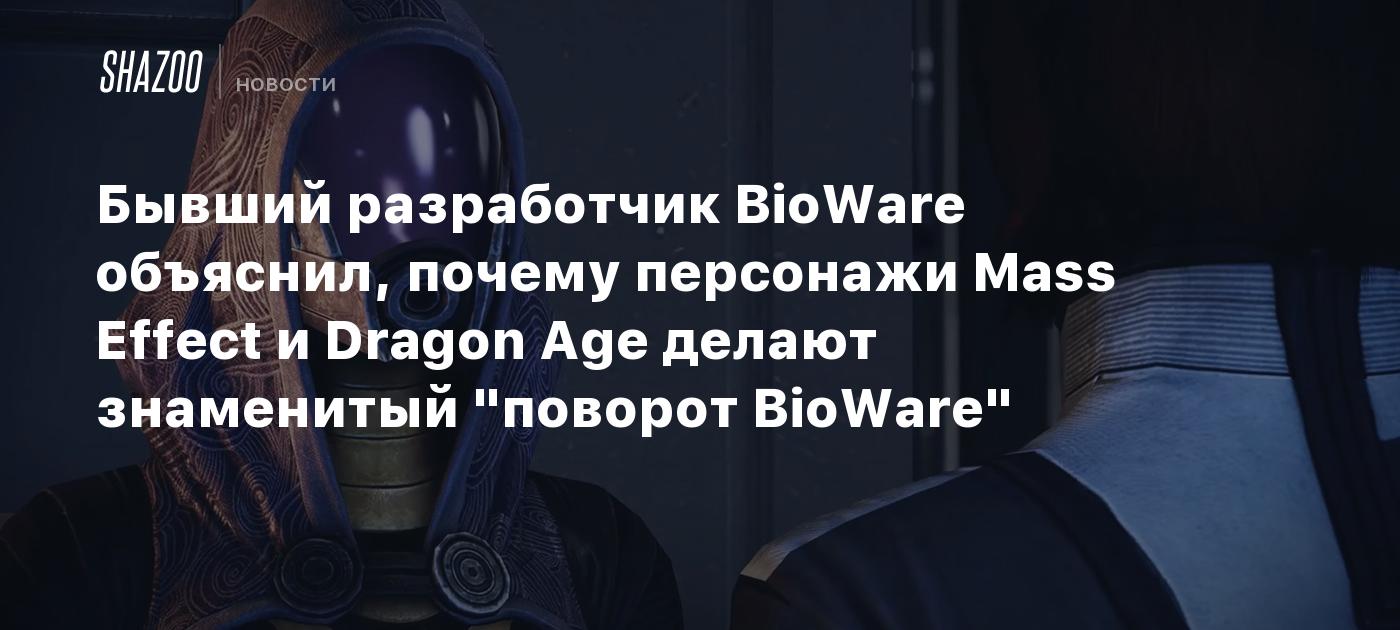You might not know the name, but you might recognize this animation. In Mass Effect and Dragon Age, many characters show certain gestures: touching their faces, touching their hands strangely, but famously, turning their heads and going out of it the frame.
This animation is called a “BioWare twist”, and as studio employee Violet McWhinney explained in a Twitter post, there’s a reason for it.
This animation is part of the Posebreakers set, which is designed to animate scenes so they don’t look too static. We also used Left/Right Transition between frames.
— McWhinney
Yes, yes, this is the exact moment with Commander Shepard and the phrase “I have to go”, after which he leaves the frame.
In fact, this is the game equivalent of theater “business” – the actions actors take to add realism and dynamics to the scene. For example, an actor playing in “Hamlet” throws props in his hands, or characters from “House of the Dragon” tinker with marble balls. Such physical activity makes the conversation more lively.
However, the famous “BioWare twist” has become so ubiquitous in the studio’s games that it sometimes distracts the player rather than bringing them into the scene. The reason is simple: the same animations are often used in different BioWare games. As McWhinney said, in the cut by Thane and Kai Leng in ME3, the developers mostly used combat animations from Jade Empire.
This reuse of animations can reduce development time, since creating new movements requires a lot of effort from dozens of people, so it is more convenient to use existing elements. However, since then the process of capturing animations has become much more accessible, so that even indie teams have access to basic animation creation rigs.


